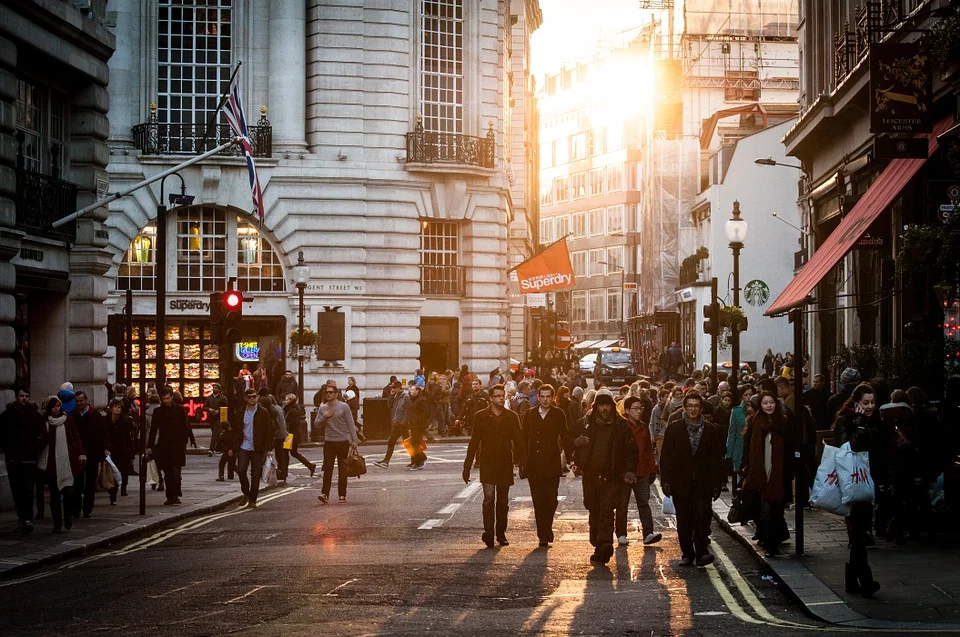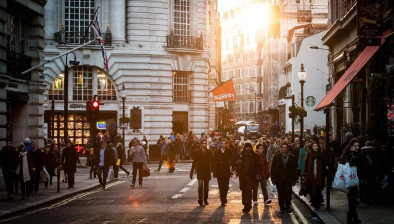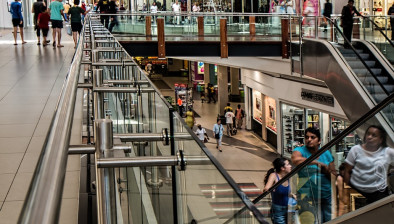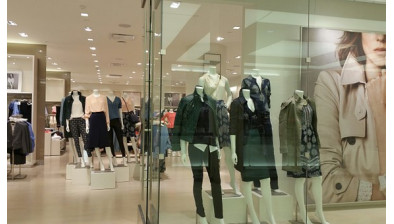UK retail sales increased by 13.9% in June
Retail sales in the UK increased by 13.9% in June, marking the second month of significant improvement in the wake of the coronavirus pandemic, according to the latest data from the Office for National Statistics (ONS).

Retail sales volumes rose 13.9% month-on-month in June, this followed a rebound of 12.3% month-on-month in May after volumes had contracted a record 18.0% in April when the lockdown was fully in force through the month.
The year-on-year drop in retail sales volumes narrowed to just 1.6% in June from 13.0% in May and a record 22.8% in April.
The improved performance means that retail sales volumes in June were only 0.6% below their February level.
Online sales largely maintained their recent increased share of total retail sales in June, despite non-essential retailers being allowed to open. Online sales as a share of total retail sales only dipped to 31.8% in June after rising to a new record high of 33.3% in May from 30.7% in April. This compares to a share of 20.0% in February.
Despite June’s improvement, retail sales volumes contracted a record 9.5% quarter-on-quarter over the second quarter of this year.
The EY ITEM Club has suggested that consumer spending contracted around 20% quarter-on-quarter in the second quarter, thereby being a major factor in a likely record quarter-on-quarter GDP contraction.
Howard Archer, chief economic advisor to the EY ITEM Club, commented on the figures, he said: “Retail sales volumes increased 13.9% month-on-month in June as they benefitted from non-essential retailers being allowed to open in England from the middle of the month. The year-on-year decline in retail sales volumes moderated to just 1.6% in June from 13.0% in May and a record 22.8% in April.
“June’s increase in retail sales volumes built on May’s decent rebound from April’s deep low. Garden centres and homeware shops being allowed to open in England from the middle of the month had helped retail sales volumes rise 12.0% month-on-month in May after falling a record 28.0% in April when sales had been affected by the full impact of the lockdown restrictions imposed on 23 March. This notably included the closure of the entire retail sales sector except for essential retailers.
Despite the pick-up in retail sales in June, there is uncertainty as to just how willing consumers will be to spend over the coming months.
Mr Archer added: “However, there is uncertainty as to just how willing consumers will be to spend over the coming months. Indeed, persistent consumer caution is seen as a significant risk that could limit the UK recovery.
“While there does seem to have been some pick-up in consumer spending in July, it also appears that consumers are cautious amid heightened job insecurity. Springboard reported shopper footfall rose 4.5% in the week to 18 July from the previous week, which was less than half the rise of 10.6% that occurred during the first week following the reopening of hospitality and leisure businesses in England on 4 July.
“Nevertheless, the year-on-year drop in shopper numbers slowed to 40.2% in the week to 18 July, which was the smallest annual decline since the lockdown was imposed.”
Euan Murray, relationship director, Barclays Corporate Banking, Scotland, added: “The last few months have been an uphill struggle for UK retail, but this latest set of figures offers hope to many that the industry is now beginning to reach level ground. Although consumer spend was down more widely, June’s retail sales figures have proven to be a high point – with grocery, household and technology spending all driving a rise in retail income.
“There are a range of factors in play here, with sunny weather, social engagements and home improvement plans all contributing to the growth in retail spend. The increased desire to adapt family homes for remote working purposes has also provided a key boost to many DIY-focused shops.
“Looking ahead we need to ask questions around the longevity of these recent trends, as well as the overall future of the high street. Footfall in local shopping hotspots has not increased as much as many would have liked – despite many hospitality and leisure providers reopening their doors – and there are questions around whether or not online spending can keep the sector afloat in the long term.
“We can never turn our nose up at such positive figures, but the changing face of the retail landscape in the UK’s ‘new normal’ is still front of mind for most retailers.”
- Read all of our articles relating to COVID-19 here.







